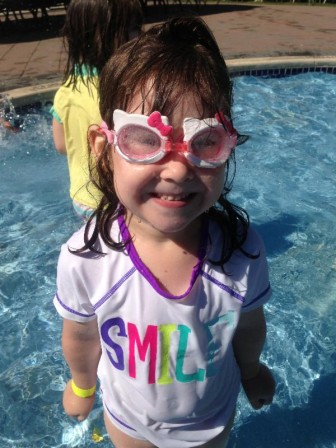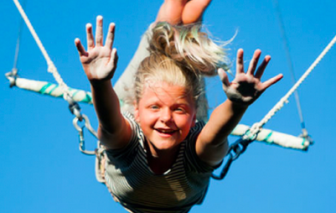With camp season in full swing, it’s a perfect time to revisit some important health and safety tips to make your children’s summer adventures are memorable for all the right reasons. Barbara Gist, Maplewood’s Public Health Nursing Supervisor, shared some of the potential problems campers face and how to address them:
Ticks
While at camp, kids should avoid overgrown vegetation and, if hiking, stick to the center of trails that are cleared of weeds and high grasses. Covering up by wearing long, solid and light-colored clothing, and tucking pants into socks, can go a long way toward avoiding tick exposure. Long, loose hair should be covered, braided, or tied up before venturing into areas where ticks are likely to inhabit.
It’s also important for campers to perform a daily tick check when spending long summer days outdoors. Remind children to inspect all parts of their body, including armpits, scalp and groin areas.
Should they find a tick, children should ask a camp counselor to assist with removal. Despite what kids might have picked up from myths or old wives’ tales, the New Jersey Department of Health reminds the public not to use petroleum jelly, hot matches, nail polish remover, or other products to remove a tick.
If your child has been in a wooded area and suspects that a tick may have gone gotten into their clothing, they should remove what they were wearing and toss the clothing into dryer and set it on high heat.
For additional tick safety information, Gist recommends visiting the NJ Department of Health’s website. Perusing the site with kids before sending them on their way is a good opportunity to help them understand the importance of tick awareness.
Lice Prevention
A common camp condition, head lice is usually spread by close personal contact with the hair of an infested person. Sharing personal items such as hats, headbands, jackets, or storing these items close together such as in closets and coatrooms can spread lice, so it’s important to encourage children to avoid swapping personal items while at camp.
If your child suspects he or she may have lice, it’s important to tell a counselor and seek treated right away to avoid it spreading to other campers.
Sunburn
Sunburn isn’t just painful, it’s unhealthy. The Centers for Disease Control offer five ways to avoid damaging your skin as a result of the sun’s ultraviolet rays.
- Stay in the shade whenever possible, particularly between 10 a.m. and 4 p.m.
- Wear clothing that covers as much exposed skin as is comfortable
- Consider wearing a wide brim hat that covers your head, neck, and ears.
- Wear wrap-around sunglasses that block both UVA and UVB rays.
- Apply sunscreen 30 minutes before sun exposure. Reapplication of sunscreen is just as important as putting it on in the first place, so reapply the same amount every two hours. Sunscreens should also be reapplied immediately after swimming, toweling off, or sweating a great deal. Make sure your sunscreen hasn’t expired by checking the dates on the container.
While campers are spending lots of time outdoors, it’s important to stay hydrated. According to the American Heart Association, the amount of water a camper will need depends on the weather and their activity level. A general rule, individuals should drink half their body weight in ounces, but when the weather is hot or activity levels are high it’s a good idea to consume more.
Make Smart Food Choices
Remind kids of the importance of eating a healthy breakfast and lunch as good nutrition is key when it comes to having the energy to participate in the day’s events.



